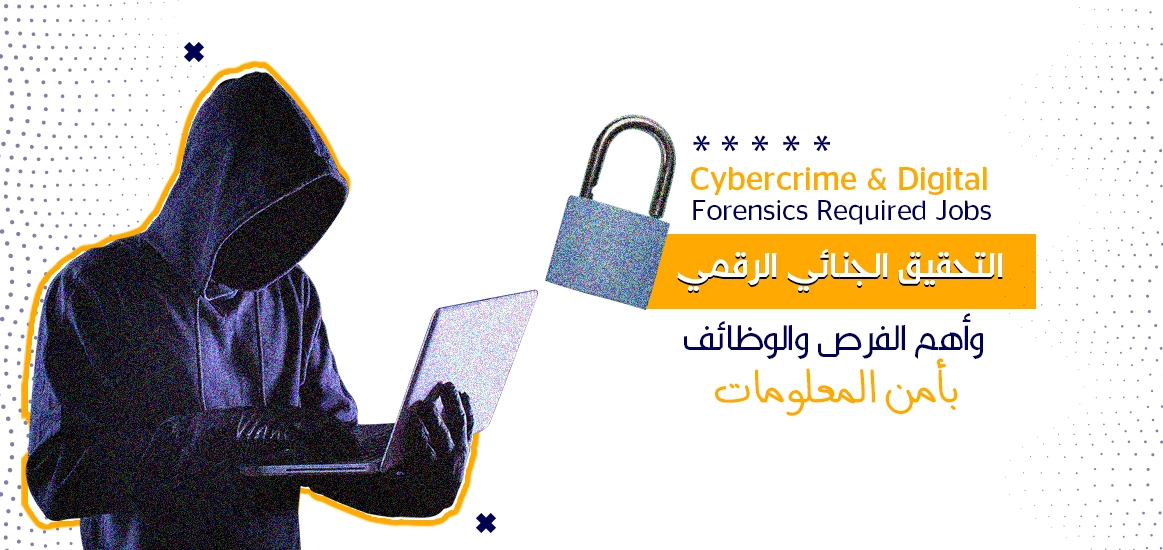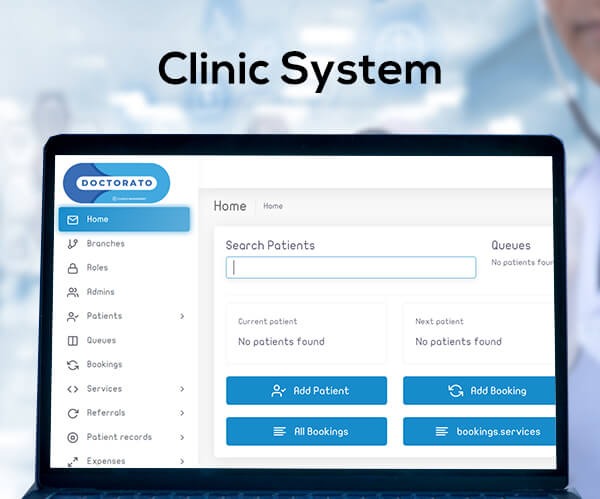With the rapid shift to the digital age and the widespread use of information and communication technology, cybercrime has significantly increased. This increase can be attributed to the vast amount of available information online, which can be exploited by cybercriminals. These crimes encompass electronic fraud, cyber breaches, electronic espionage, privacy violations, and various other unlawful
The economic damages resulting from these crimes are substantial, not only in terms of direct financial losses but also in their impact on the reputation of companies and individuals, as well as the costs of investigation and remediation. Studies predicting that the damages from cybercrimes will reach trillions of dollars underscore the growing importance of information security awareness and the development of cybersecurity technology.
The widespread use of the internet and digital technology means that vast amounts of digital data are generated and processed every second. This necessitates stronger security measures and advanced protection technology to combat cyber threats and safeguard sensitive data and information. There is a growing cadre of professionals in the field of cybersecurity and digital forensic investigation to assist in combating these crimes and protecting data and information.
Digital forensics also known as digital forensics or digital forensics examination, is a specialized process aimed at collecting and analyzing digital evidence related to crimes. This includes the use of computing devices and digital technology to examine data and devices that may contain evidence contributing to the understanding of the crime and identifying the perpetrators. This digital evidence includes information, files, and records that can be found on computers, mobile phones, tablets, and other smart devices, aiding in presenting evidence in courts.
Examples of digital evidence include:
Data on Electronic Devices: Such as smartphones, personal computers, and electronic tablets Information can be retrieved from these devices to search for useful clues.
Internet Data: This includes information such as internet activity logs, email records, usage history, and online communication records.
Social Media Data: Analyzing conversations and posts on social media platforms to understand behaviors and relationships
Other Digital Data: This category encompasses examples like text message records, GPS data, call logs, and multimedia files.
Digital forensic analysis plays a crucial role in uncovering crimes and guiding legal actions against suspects. It also contributes to maintaining cybersecurity and combating electronic threats. This field continues to evolve continually with the advancement of technology and the increasing use of digital devices in our daily lives.
The techniques and tools used in digital forensic investigation depend on technological advancements and local laws. Digital forensic investigators must adhere to strict legal standards to ensure the integrity of evidence and protect the rights of the accused.
Examples of crimes and attacks that digital forensic analysis deals with:
Ransomware: Where a victim's files are encrypted, and a financial ransom is demanded to unlock them. Digital forensic investigators must attempt to trace the money and identify the suspects.
Phishing Attacks: These attacks aim to obtain personal information from individuals through forged messages or fake websites. Analysis of these attacks is performed to identify their creators and understand how they operate.
SQL Injection Attacks: These attacks target vulnerabilities in databases through manipulated input. Investigations aim to determine the extent of the attacks and the parties responsible.
Distributed Denial of Service (DDoS) Attacks: Targeted at shutting down a service by directing massive traffic toward the target. Digital forensic analysis aims to identify the sources of the attack and the entities behind it.
Data Breaches: Analysis of these crimes is conducted to identify the stolen data, how the breach occurred, and to track down the hackers.
The ultimate goal of digital forensic analysis is to accurately preserve and document digital evidence so that it can be used as legal evidence in court. These processes play a crucial role in delivering justice and protecting against cybercrimes.
The importance of using digital forensic analysis is multifaceted and includes:
Investigating Cybercrimes: Digital forensic analysis can be used to investigate cybercrimes such as online fraud, data theft, and cyber breaches. This helps in identifying perpetrators and bringing them to justice.
Protecting Companies and Organizations: Companies and organizations utilize digital forensic analysis to protect their systems and data from cyberattacks and to investigate internal policy violations. It also helps them understand potential threats.
International Criminal Investigations: Digital forensic analysis can be employed in international criminal investigations to understand and analyze the activities of criminals across national borders.
Preserving Evidence: Digital forensic analysis contributes to accurately preserving and documenting digital evidence for use in court proceedings, ensuring justice.
Network Log Analysis: This type of analysis is used to examine network logs and detect attacks and unauthorized activities.
Detecting Future Threats: By analyzing previous attacks and behavioral patterns of cybercrimes, institutions can identify potential future threats and take preventive measures against them.
In an increasingly digital world, digital forensic analysis plays a vital role in safeguarding individuals, organizations, and nations from cyber threats and ensuring the proper investigation and prosecution of cybercriminals.
The goals of digital forensic investigation include:
Retrieving and Analyzing Digital Materials: The primary objective is to recover and accurately analyze digital data related to a crime from electronic devices. This includes recovering deleted files and examining various digital storage media.
Identifying the Perpetrator and Motives: Digital forensic analysis aims to identify the main perpetrator and understand the motives behind the crime. This can help achieve justice and take legal actions against wrongdoers.
Designing Criminal Procedures: This goal involves designing procedures to protect digital materials and potential evidence at the crime scene, ensuring data integrity during the investigation.
Data Duplication: Data must be duplicated in a way that preserves it as legal evidence. This includes cloning disks and digital storage media reliably and professionally.
Swift Evidence Identification: Quickly identifying evidence helps assess the potential impact of the crime on the victim and assists in determining the appropriate legal steps.
Preparing a Digital Crime Report: This goal includes preparing a detailed report about the investigative process, collected evidence, and forensic analysis. This report can be used as legal evidence in court.
Evidence Preservation: Digital evidence must be securely and reliably preserved to prevent loss or tampering. This requires storing it in a secure, specifically accessible location in accordance with relevant laws and regulations.
These objectives contribute to achieving justice and ensuring the proper documentation of digital evidence for use in court or in presenting forensic evidence to assist the legal system.
Embarking on a career in Ethical Hacking is not only a fascinating journey but also a vital contribution to cybersecurity and the protection of digital assets. Aspiring Arab students, consider the field of Ethical Hacking as it offers an exciting opportunity to play a crucial role in safeguarding our digital world."
Careers in the field of digital forensic analysis hold immense importance in combating cybercrime and safeguarding cybersecurity for individuals, institutions, and governments. They require a deep understanding of technology and cybersecurity, the ability to investigate and analyze with precision, and a commitment to professional ethics.
Digital Forensic Investigator: This is the core role in the field of digital forensic analysis. Digital forensic investigators collect and recover digital evidence from computers and electronic devices, analyzing it for use in criminal investigations.
Cybersecurity Analyst: Cybersecurity experts work to protect the digital infrastructure of institutions and companies from cyberattacks. They can also play a role in analyzing cybercrimes.
Cyber Threat Analyst: Cyber Threat Analysts monitor and analyze suspicious cyber activities, providing reports on them. They work to identify potential cyber threats and counter them.
Incident Responder: Cybersecurity Incident Responders deal with real-time cyberattacks, taking actions to halt the attacks and recover data.
Cybercrime Analyst: Cybercrime Analysts analyze unlawful electronic activities, attempting to identify perpetrators and understand their motives.
Security Technical Expert: These experts design and implement advanced security technologies and digital solutions to protect systems and data.
IT Manager: IT Managers oversee the digital infrastructure of institutions, ensuring its security and efficient operation.
Data Analyst: Data Analysts play a significant role in analyzing big data and digital information to detect patterns and crime-related analytics.
Digital Data Analysis Manager: Supervising digital forensic analysis teams, these professionals coordinate investigation and analysis operations.
Embracing a career in ethical hacking not only offers an exciting journey but also empowers you to make a meaningful contribution to cybersecurity. Aspiring Arab students, consider pursuing a path in ethical hacking, as it opens doors to a world of opportunities where you can defend against cyber threats and protect digital assets."
What is the average salary in the field of digital forensic investigation?
The average salary in the field of digital forensic investigation can vary significantly depending on several factors, including geographical location, job level, experience, the size of the company or organization the individual works for, and the industry sector. However, a general estimate of salaries in this field can be provided.
In the United States, for example, the average salary for an entry-level Digital Forensic Investigator can be around $60,000 to $80,000 annually. Experienced and highly skilled digital crime investigators, on the other hand, can earn salaries exceeding $100,000 or more annually.
It's worth noting that these figures can vary based on the aforementioned factors and by country and geographic region. Additionally, there can be significant salary differences between the public and private sectors, with salaries in the private sector generally being higher.
Do you think a career in digital forensic investigation might be suitable for you?
Digital forensic investigation is a rapidly growing field with many opportunities for advancement, and competitive salaries. It provides job prospects across a variety of sectors in a fast-paced, challenging work environment.
To work in the field of digital forensic investigation, you'll need to acquire a specific set of technical, professional, and job-related skills. Here's a summary of some of these skills:
Technical Proficiency: You should be well-versed in operating systems, digital devices, and be capable of working with computers, digital investigation tools, and network management systems.
Attention to Detail: Being meticulous in monitoring digital evidence to find critical clues is essential.
Understanding of Law and Criminal Investigation: Understanding the laws related to cybercrimes and criminal investigation is crucial for proper application.
Communication Skills: Effective communication with teams, law enforcement, the judiciary, the public, and presenting reports and testimonies in court is necessary.
Cybersecurity Awareness: Having a basic understanding of cybersecurity fundamentals helps in comprehending cyberattacks and investigating them.
Analytical Skills: You need to analyze digital evidence and draw patterns and critical information from it.
Willingness to Learn: The field of digital forensic investigation is constantly evolving, so being open to continuous learning and staying updated on technological advancements is vital.
Handling Difficult Material: You should be able to deal with potentially disturbing or shocking materials while maintaining professional ethics in the investigation.
Teamwork: Digital forensic investigation can often be a collaborative effort, so the ability to work effectively in a team, exchange information, and experiences is essential.
Creative Thinking: At times, you may need to search for creative solutions to investigate digital crimes.
Most jobs in the digital forensic investigation field require at least a relevant advanced degree, and many also prefer recognized certifications in digital forensic analysis.
Some of the Most Recognized International Certifications in the Field of Digital Forensic Investigation
There are many internationally recognized certifications that can help you develop your skills and enhance your career prospects in this field. Here are some of the most recognized international certifications in digital forensic investigation along with estimated costs:
- Certified Information Systems Security Professional (CISSP): This certification focuses on cybersecurity and also covers digital forensic investigation topics. The exam cost typically ranges from $600 to $700.
- Certified Cyber Forensics Professional (CCFP): This certification emphasizes digital forensic investigation, data recovery, and cybersecurity. The exam cost usually ranges from $450 to $600.
- Certified Ethical Hacker (CEH): This certification focuses on understanding hacking techniques and security testing. The exam cost typically ranges from $500 to $1,199.
- Computer Hacking Forensic Investigator (CHFI): This certification focuses on digital evidence analysis and cybercrime investigation. The exam cost typically ranges from $500 to $1,199.
- Certified Digital Forensics Examiner (CDFE): This certification focuses on digital forensic analysis and data recovery. The exam cost typically ranges from $400 to $600.
- GIAC Certified Forensic Examiner (GCFE): This certification focuses on digital evidence analysis and forensic investigation. The exam cost typically ranges from $1,899 to $2,699.
- Certified Cyber Investigative Expert (CCIE): This certification focuses on cybercrime investigation and forensic analysis. The exam cost typically ranges from $500 to $1,000.
- Certified Fraud Examiner (CFE): This certification focuses on fraud investigation and financial crimes, which are related to digital forensic investigation. The exam cost typically ranges from $300 to $825.
Please note that exam costs may change over time and vary depending on the certifying organization and the country where the exams are conducted. You should also consider the costs of exam preparation, such as training courses and study materials.
Essentials in the Field of Digital Forensic Investigation
To effectively conduct digital forensic investigations, a variety of methodologies and specialized tools can be utilized, requiring a deep understanding of cybersecurity and precise and efficient use of digital forensic analysis tools. The work of digital forensic investigators also involves searching for illegal activities online, verifying digital identities, and attempting to trace cybercrimes.
Here are some key essentials for the field of digital forensic investigation:
- Disk Forensics: This involves the analysis and data recovery from storage media such as hard drives, SSDs, and removable storage devices. The goal is to extract and analyze data to find digital evidence.
- Network Forensics: This aspect involves analyzing network traffic to detect unauthorized activities or cyberattacks. It can be used to trace the sources of attacks and understand their execution.
- Mobile Device Forensics: This includes data and evidence recovery from mobile phones and tablets. It can be used to investigate crimes related to mobile devices and their applications.
- Live Forensics: This pertains to collecting digital evidence from currently operating systems, which may be connected to the internet. It can be used to investigate ongoing cyberattacks or retrieve data from live systems.
- Memory Forensics: This focuses on data and evidence retrieval from computer memory. It can be used to detect malware and analyze its behavior.
- Multimedia Forensics: This involves the analysis and examination of images, videos, and audio to determine their source, modifications, and detect any digital manipulation.
- Internet Forensics: This encompasses the investigation of internet activities, such as online crime investigations, tracking online activities, examining email, and analyzing website logs.
These essentials serve as a starting point, and in the field of digital forensic investigation, you will need to learn and develop advanced skills and use different tools to achieve specific objectives in your investigations.
Prominent Arab universities specializing in cybersecurity:
The following universities offer specialized programs in cybersecurity to meet the increasing demand for skilled professionals in the field
- Naif Arab University for Security Sciences (City of Al Ain):
- The Department of Criminal Law at Naif Arab University for Security Sciences is a unique scientific branch in the Arab world. It offers programs in Criminal Law, Police Sciences, and Forensic Sciences.
- Imam Abdulrahman Bin Faisal University:
- The university offers a Bachelor's degree in Cybersecurity and Digital Investigation within the Information Security Management program. The curriculum covers information security, standards, mobile and wireless network security, secure software design and engineering, security threats and vulnerabilities, and applied cryptography.
- King Saud University:
- King Saud University offers a Bachelor's degree program in Applied Computing (Cybersecurity Track). The program aims to prepare qualified professionals for the job market, emphasizing practical learning, intellectual creativity, and optimal technology utilization in the field of cybersecurity.
- Prince Sultan University:
- The College of Computer and Information Sciences at Prince Sultan University has introduced a Cybersecurity specialization, recognizing the importance of the cybersecurity field and the growing demand for experienced security professionals. Upon completing the specialization, students gain a solid understanding of security technologies, organizational management principles, and best practices.
- Dar Al-Hekma University:
- The Bachelor of Science program in Cybersecurity at Dar Al-Hekma University is one of the first specialized programs in Saudi Arabia. Graduates are equipped with the necessary knowledge to protect information and computer systems in both public and private organizations from unethical attacks.
- Prince Mohammad Bin Abdulaziz University:
- This university aims to lead in computer science education by graduating creative specialists with high competence to conduct innovative research in various fields of computer science and cybersecurity. It contributes to the development of society by preparing students for advanced research in computer science and cybersecurity.












